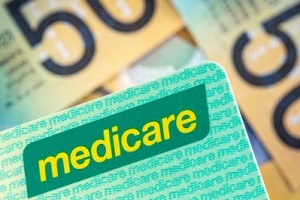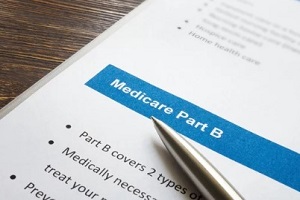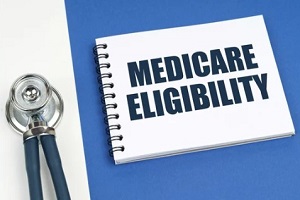 The great state of Connecticut is no stranger to Medicare. According to the Rural Policy Research Institute, 27.2% of all Medicare-eligible adults in the state are enrolled in the program. Medicare is one of the most important post-retirement healthcare options for locals.
The great state of Connecticut is no stranger to Medicare. According to the Rural Policy Research Institute, 27.2% of all Medicare-eligible adults in the state are enrolled in the program. Medicare is one of the most important post-retirement healthcare options for locals.
Medicare has become an indispensable government program for countless Americans. Its ability to make healthcare affordable and accessible for those eligible makes the program quite popular.
To appeal to as many Americans as possible, Medicare itself is pretty flexible, with plenty of options for consumers to choose one per their needs. Nevertheless, figuring out whether or not you are eligible for the publicly funded Medicare options can be confusing. Fortunately, we are here to answer all of your Medicare-related queries.
What Are the Medicare Parts?
While Medicare is an excellent public initiative, it gets confusing because its reach and scope are divided into four parts. Here is what they entail and what Medicare eligibility Connecticut is:
Medicare Part A
Medicare Part A covers basic hospital insurance for all Americans aged 65 and above, provided that they or their spouse has paid Medicare taxes for a specific period. In other words, if you are 65 or older, there is a significant chance you already qualify for Medicare Part A without needing to pay any additional fees or premiums.
You can also determine that you qualify for Medicare Part A if you:
- Worked in a government job covered by Medicare
- Are eligible or are currently receiving Social Security benefits
- Are eligible or are presently receiving Railroad Retirement Board (RRB) benefits
This makes Part A the most accessible of the four parts for aging Americans with rising healthcare costs. Indeed, if you are currently eligible for the latter two programs, you will automatically start receiving Medicare benefits four months before your retirement.
If not, then you will have to apply with the Social Security Administration – though there is a significant chance they might approve your request.
Medicare Part B
 People already eligible for Part A have the option to purchase Part B. For a nominal monthly fee of 170.10 USD – though this number can rise depending on your income – you will receive additional health coverage. This includes outpatient care, medical equipment, and home health services.
People already eligible for Part A have the option to purchase Part B. For a nominal monthly fee of 170.10 USD – though this number can rise depending on your income – you will receive additional health coverage. This includes outpatient care, medical equipment, and home health services.
Much like Part A, those currently eligible for Medicare under Social Security or RRB benefits will be automatically enrolled in Part B four months before retirement. However, if you feel like you do not need it and do not want to pay its premiums, you can discard it. Best of all, the option to re-enroll whenever necessary is always available to you.
Medicare Part C
Part C, also known as Medicare Advantage, is the private option available to Americans who want to be looked after by a local healthcare facility. It might also include drug coverage. To qualify for it, you already need to be enrolled in Part A and B, and the insurance you are looking to get is available in your area.
Many recipients of Medicare prefer having Part C because it allows them to be treated by their preferred healthcare professional at subsidized rates. Remember that these plans vary in price and coverage since private insurance agencies run them.
Medicare Part D
Perhaps the D in Part D stands for drugs because that is what it covers. Part D will ensure you can afford all essential medications. You are eligible for it if you are already covered by Part A. Nonetheless, you do not need Part D if you are already a part of a Medicare Advantage program that covers medications.
Note that the prices for Part D also vary because, much like Part C, they are run by private companies. Moreover, it is better to enroll in Part D as soon as you are eligible for Medicare if you think you will need it. Otherwise, you will need to pay a penalty fee or enroll in it later.
Medicare Eligibility for People Under 65
If you are under 65, you are not out of Medicare options. However, the scope for eligibility considerably narrowers for you. These are the three conditions under which someone under 65 can qualify for Medicare:
 Have final stage renal disease. In this case, you must file a petition for Medicare benefits. Your eligibility will be contingent upon various factors – such as whether or not you are currently receiving dialysis.
Have final stage renal disease. In this case, you must file a petition for Medicare benefits. Your eligibility will be contingent upon various factors – such as whether or not you are currently receiving dialysis.- Have ALS. You will be automatically enrolled in Part A and B after your first month of disability benefits.
- Have received disability benefits under Social Security or RRB for 24 months. If you have received these benefits for this long, you will automatically be enrolled in Part A and B.
Getting Insurance Until You’re 65
Of course, the restrictions mentioned earlier limit countless Americans under 65 from accessing Medicare insurance benefits. At JMG Insurance, we have several insurance plans that can cover your healthcare needs until you retire.
Moreover, we also offer a Part C Medicare Advantage program, allowing Connecticut residents to receive treatment from their preferred healthcare provider. Contact us to learn more about how we can help you get the right Medicare and insurance coverage.




